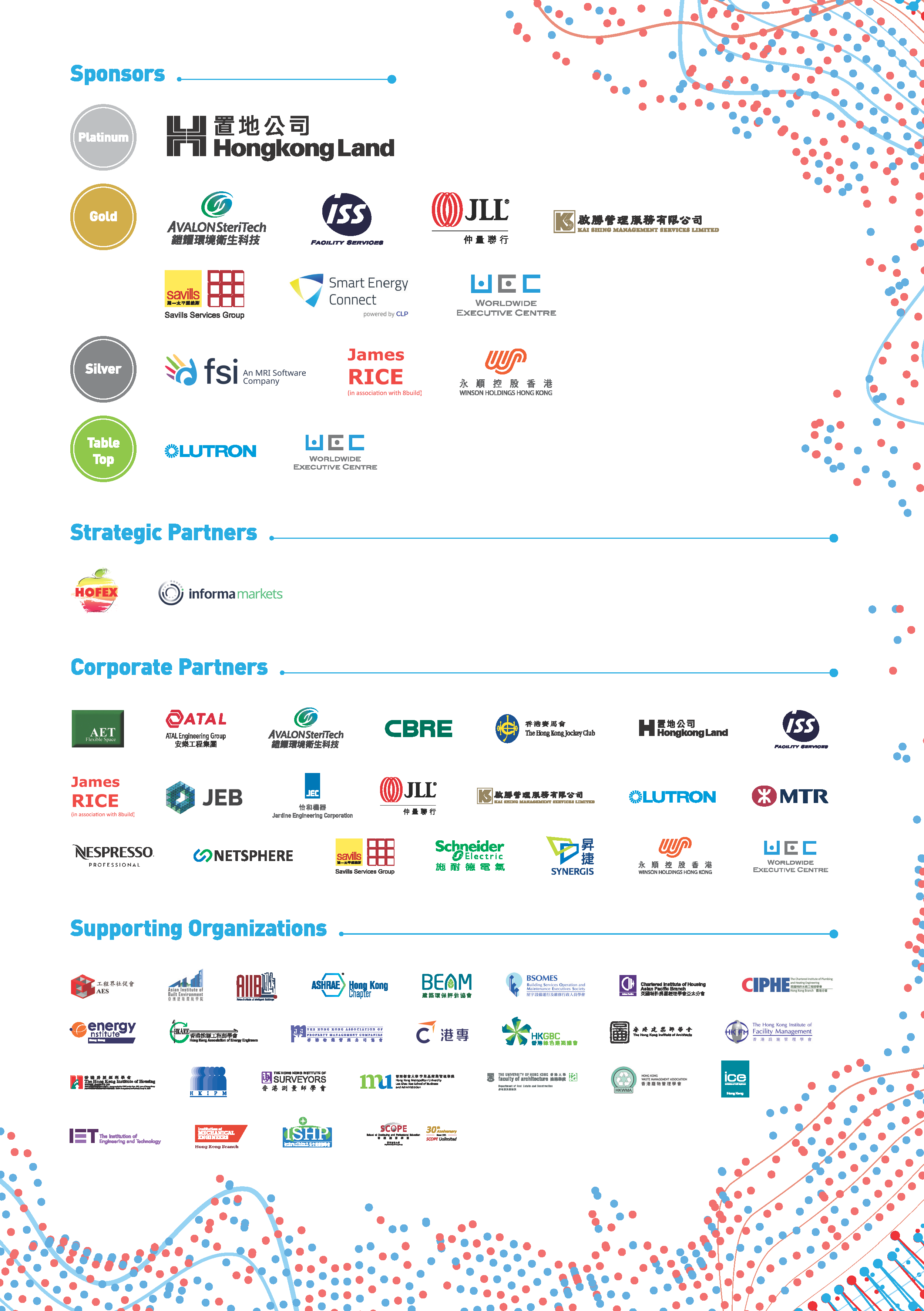

Road to Zero Carbon – Strategies for Properties Operation |
 |
|
Ir Dr Tony LAM, Director of Sustainability, Arup |
||
|
Abstract Built environment, carbon and climate are the key issues for people. Cvoid-19 led to the lock down of certain numbers of human activities around the world. Apart from the negative impact to business and economy, in a positive way we can also see that our planet is actually getting better by realizing the blue skies in industrial cities and clear water in tourist cities, etc. People can contribute to the planet by controlling and reducing our greenhouse gas emission, and tackle with climate change with an quicker response. With the initiative of World Green Building Council (WGBC) on “Advancing Net Zero”, some cities around the world have already pledged the target year (e.g. 2050) of carbon neutrality. Facility Management Profession plays an important role of property daily operation, and certainly Building Sector is also one of the major sources of carbon emission of a city. It is time to review and identify the real solutions & target for property carbon reduction, by looking into the operation components like electricity use, water consumption, waste management, etc. The Covid-19 outbreak has brought immerse attention to both public and private facilities which can prevent/ reduce potential health risks. Most properties include activity spaces which have the frequent flows of people, for example retail and office buildings. Those flows of people are one of the key factors of spreading the pathogens and virus, and the building profession is currently thinking of the effective way to block the link of this spreading path. Effective facility upgrade is expected to reduce the risk of virus transmission. This sharing discusses the critical role of FM profession and the approaches toward Zero Carbon. With the rapid development of IoT application, it is proposed that digital technology can be used as a carbon tracking and health risk prediction tools for our properties. By continuously monitoring and analyzing carbon-focused & health data, we can improve the overall building performance in terms of carbon reduction and occupants' health. Biography Ir Dr Tony Lam is a Director of Sustainability at Arup. As a sustainability specialist, he has extensive experience in tackling environmental impacts on the built environment, particularly in implementing low carbon, wellness and healthy development. He is a green design expert and has completed a number of exemplar sustainable projects in East Asia, including K11 Atelier King's Road, CIC Zero Carbon Building (ZCB), Hong Kong Housing Authority (HKHA) Housing Communities, Hualian Residence in Taiwan and South Beach in Singapore. Tony has been a WELL Faculty member since 2016, and IWBI Asia ESG Task Force Co-Chair since 2020, while he has delivered the first two WELL Platinum-certified buildings in the Hong Kong. Currently, he is leading a specialist team to implement various innovative solutions using IoT and big data to help clients address their wellness and zero carbon objectives for properties & facilities operation. Tony was awarded the CIC Young Innovator Award in 2017. |
